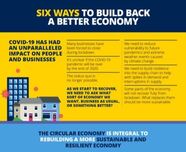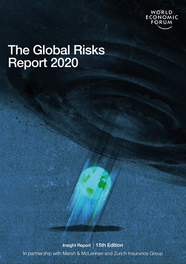 WRAP has released advice on building a stronger economy post COVID, harnessing the circular economy, which has the potential to create up to half a million new jobs. Read more here. Living within the means of the Earth's resources is a global concern, leading to a focus on the circular economy, reducing the reliance on virgin raw materials. A study by the European Commission quantifies the amount of material that is not being recycled but could be — known as the ‘Circularity Gap’.
Read more here. A global economic value of US$6 trillion (£5 trillion) has been attributed to the mental health benefits of the natural environment, adding to the value arising from ecosystem services and tourism. Poor psychological health has an enormous economic cost, and positive mental health contributes to a stronger economy.
Protected natural areas are under increasing pressure from political and economic factors, and climate change. An Australian study has calculated the economic value of natural areas in terms of mental health. Read more: https://ec.europa.eu/newsroom/dae/document.cfm?action=display&doc_id=68053 https://www.nature.com/articles/s41467-019-12631-6 |
Archives
July 2024
Categories |
- Home
- About
-
Our Work
- Scottish Government
- Driving emissions reduction in supply chains
- Buying Social Justice - equality in procurement
- World Bank - Africa and Caribbean Sustainable Public Procurement
- America - OAS and IDB
- Jamaica - public procurement
- India - sustainable procurement training
- SPL in Africa
- ITAIPU Binacional and Latin America
- City of Greater Geelong
- Marrakech Task Force
- Health and Social Care
- Greater London Authority
- Innovation in procurement
- Circular Economy
- Plastic Waste Reduction in Canada
- SPL Blog
- Contact
Site powered by Weebly. Managed by netnerd.com
Photos from Eric Kilby, andreboeni


 RSS Feed
RSS Feed
